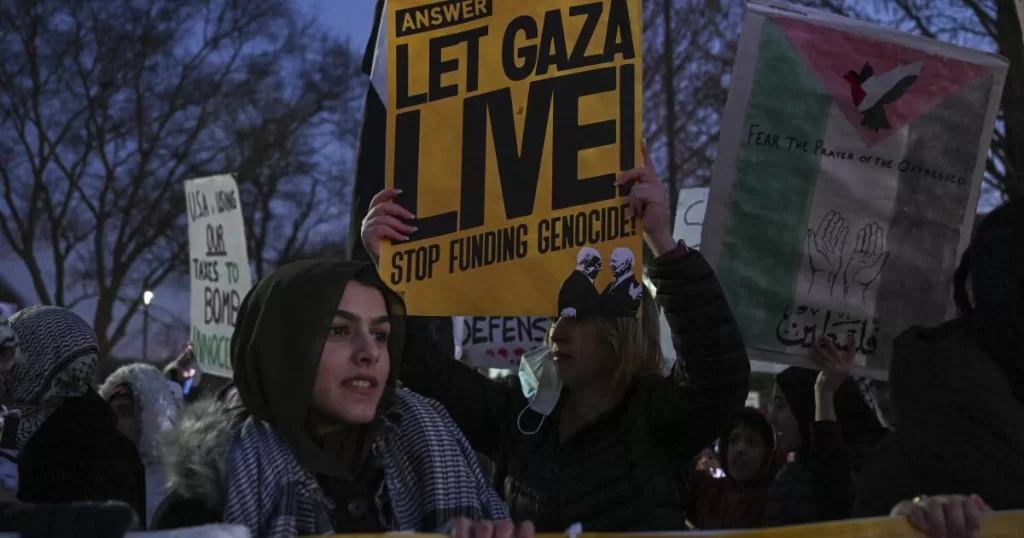Nevertheless, she recently went on CNN and, without citing any evidence, accused protesters advocating for a cease-fire in Gaza of having ties to Russia and called on the Federal Bureau of Investigation to research the financing behind these protests. When outrage over that proposed abuse of power erupted a few days later, she doubled down.
It is precisely this kind of danger that requires careful limitation of surveillance tools such as Section 702 of the Foreign Intelligence Surveillance Act, a law aimed at foreigners abroad but commonly misused to spy on Americans. That provision of FISA will expire in April unless renewed by Congress. Lawmakers should not reauthorize it without fundamental reform.
Two other California representatives, Tom McClintock (R-Elk Grove) and Sara Jacobs (D-San Diego), have advocated reforming Section 702 to protect Americans’ privacy. The House Judiciary Committee passed legislation last year to do that: The Protect Liberty and End Warrantless Surveillance Act would require the government to present evidence of wrongdoing and obtain a warrant before searching the communications of Americans, such as those protesting for a cease-fire.
Pelosi, the former speaker of the House, was part of the inner circle privy to surveillance findings (the “Gang of Eight”) longer than anyone else currently in Congress, so she knows the expansive tools the national security apparatus can use to investigate and surveil protesters. She also knows how those tools can be abused.
There is a long history of the FBI using “foreign influence” as an excuse to conduct illegal surveillance on Americans. The bureau surveilled Martin Luther King Jr. and other civil rights leaders, claiming they might be under the influence of foreign communists. After 9/11, the FBI repeatedly profiled, surveilled and disproportionately prosecuted Muslim Americans, often under a pretext of affiliation with foreign adversaries. That shameful legacy would continue if Gaza war protesters were subjected to baseless surveillance.
While Section 702 requires that surveillance is targeted at foreigners overseas, in practice large quantities of the communications that Americans exchange with people abroad are also swept up and stored for future investigations. If the FBI opened an investigation into cease-fire demonstrators, agents would almost certainly use the Section 702 database to find and search the communications of protesters. Vague and unfounded claims of foreign influence or foreign intelligence gathering can lead to a flood of unlawful searches.
The FBI can conduct searches of this database without having to demonstrate probable cause, as the 4th Amendment would otherwise require. In most cases, an FBI analyst can search for and review an American’s private communications without the need to seek any further approval.
Just last year, government documents revealed that the FBI misused Section 702 to unlawfully query the communications of 133 Black Lives Matter protesters, part of a baseless investigation to determine whether they were subject to foreign influence.
According to a report from the Privacy and Civil Liberties Oversight Board, from November 2020 to December 2021, “non-compliant queries related to civil unrest numbered in the tens of thousands.” Past searches also include two “Middle Eastern” men who were loading boxes of cleaning supplies into a vehicle and a state court judge who had complained to the FBI about civil rights violations.
Section 702 has been abused under presidents from both political parties, and it has been used to unlawfully query the communications of individuals and groups across the political spectrum. That’s why, with public trust in our leaders and institutions rapidly declining by the day, lawmakers should be strengthening civil liberties protections against abuses of power, not advocating more of them.
Kia Hamadanchy is a senior policy counsel at the American Civil Liberties Union.
